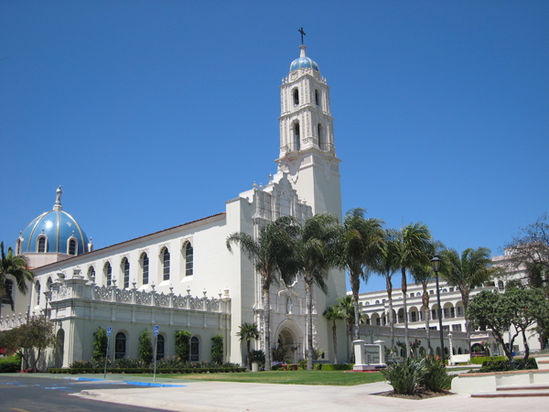STEAM Education for Teachers across America will get a boost this summer when the School for Educational Leadership (SOLES) at the University of San Diego (USD) will begin offering a new
online Masters Degree. Emphasizing the concepts of STEAM (for Science, Technology, Engineering, Art and Math) to teachers across the country, this degree could revolutionize K-12 education.

SOLES has always prided itself for turning out people who not only want to teach, but know the importance of globalization, the role of technology, and the vital role of the arts in changing the education paradigm. But the new Masters is likely to change Schools and Colleges of Education everywhere, compelling them to embrace the way teachers are taught to teach, and students learn.
Most of the debate about K-12 education is about teachers, about their commitment to students or their competency... very little finger pointing goes to the universities where they received their credentials. No one can really think teachers choose the profession they do because they are lazy or want a tenured position or worse, could care less about the kids. The idea that we have a problem with teachers is repugnant and, frankly, terribly shortsighted. But many of the teachers have not had the benefit of studying the arts, learning how to use art integration or asked to do so. In fact, most principals and education policymakers aren't trained to think of the arts in such a way either.
In just the last few years, as The College Board National Task Force on the Arts in Education (NTFAE) concluded after two years of study and research, in a 2009 report called Arts at the Core:
"The arts are effective in keeping students in school, engaging students in learning and promoting high achievement...they should be at the core of the education we provide for our children. The NTFAE further believes the College Board must integrate the arts into its programs and services, recognizing that infusing arts across the curriculum is an invaluable learning tool. Creativity and imagination -- typically associated with the arts and which the arts encourage -- are critical to so many aspects of life, in and out of school."
The USD Masters program offering specializations in Science, Technology, Engineering, Arts, and Mathematics (STEAM), as well as degrees in "Universal Design for Learning (UDL) and Inclusive Education, 21st Century Literacy, and Curriculum and Instruction", is intended to insure the student possesses the "knowledge, skills, and dispositions to:
•Design classroom-learning experiences that prepare K-12 students for success in a globally connected, 21st century society.
•Promote equity and excellence through inclusive teaching practices that empower all students and advance social justice.
•Engage in systematic inquiry of classroom teaching and learning for the purpose of continuously strengthening practice and leading transformation in the classroom, school, and professional community."
Heather Lattimer Ph.D., who helped shape and launch the new program, specializes in "literacy, social studies and history education, project based learning, curriculum design and evaluation ... and international education."
Lattimer says that the "online Master's of Education is designed to help teachers develop the knowledge and skills needed, and cultivate creativity and innovation in their students through purposeful integration of the arts with the STEM disciplines;" and she also emphasized that the new Masters is intended "for experienced educators interested in advancing their knowledge and practice through the integration of innovative pedagogies and inclusive and equitable instructional design."
They are particularly looking at "practicing K-12 teachers, (with) a minimum of two years of teaching experience in public district, charter, independent, or non-traditional schools and classrooms. (Including) museum education, outdoor education, after-school education, home schooling, etc. Many of the students are "expected to continue to teach while enrolled in the program. "
The online capability is attractive for teachers across the country who may be unable to come to San Diego, like the idea of logging on when its convenient for them, and asking questions whenever they need to without the formality -and often embarrassment-of more traditional classroom settings. Budget considerations aside--though serving larger student populations is very much on the mind of Universities everywhere- the fact is that our world has changed.
According to Glenn Hartz, a professor of philosophy at Ohio State University writing in The Chronicle of Higher Education:
"Social media, e-mail, and texting have displaced personal contact in a way that would have been hard to predict. Electronic media have become the standard way of communicating...Lecture becomes soundtrack. PowerPoint presentations become occasional interlopers. High-definition photos and videos and movie clips dominate the show. And make no mistake, it is a show--this is entertainment education. Assuming that the content is there, the course is now judged largely on how artfully and smoothly the elements meld together into a coherent, pleasing whole."
For more information see: USD Masters in STEAM